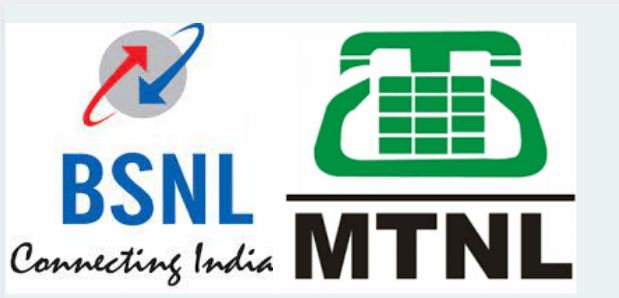Bharat Sanchar Nigam Limited is BSNL. Mahanagar Telephone Nigam Limited is MTNL. These are both sick, irrecoverable and lethargic PSUs that continue to gulp taxpayer money for no returns at a breakneck pace. At a time when companies around the world are profit-oriented, BSNL and MTNL remain public sector undertakings that excel in cash consumption. They are involved in the crucial telecommunications sector of India, which in any case is facing the prospect of turning into a duopoly between Reliance Jio and Airtel. So, the Modi government has taken a conscious and appreciable decision to begin monetising BSNL and MTNL’s non-core assets, and this is a step towards the final Air India like sale of both the money-guzzling PSUs.
The Department of Investment and Public Asset Management (DIPAM) on Saturday invited bids to sell six assets of state-run telecom firms Bharat Sanchar Nigam Ltd (BSNL) and Mahanagar Telephone Nigam Ltd (MTNL) through its new asset monetisation portal. DIPAM Secretary TuhinKanta Pandey tweeted saying, “Non-core asset monetisation commences with the first set of six properties of BSNL/ MTNL bid out on the MSTC portal.”
The government has listed for sale real estate assets of the telecom companies at a reserve price of around Rs 1,100 crore. Live mint reported that BSNL properties located in Hyderabad, Chandigarh, Bhavnagar and Kolkata have been posted for sale at a reserve price of around Rs 800 crore. The DIPAM website has listed MTNL assets located in Vasari Hill, Goregaon in Mumbai for sale at a reserve price of around Rs 270 crore.
The asset monetisation is a part of the Modi government’s Rs 69,000 crore revival scheme for MTNL and BSNL. Both the PSUs have been directed to identify and monetise assets worth Rs 37,500 crore by 2022.
BSNL’s Financial Health
BSNL has really made a name for itself for testing its 4G services only recently, even as operators around the world as well as in India are preparing for 5G rollouts. BSNL posts losses worth billions of dollars every year. In FY 19-20, the company posted a loss of 15,499.58 crore rupees and in FY 20-21 of 7,441 crore rupees. The revenue from operations of the company declined by 1.6 per cent to Rs 18,595.12 crore in 2020-21 compared to Rs 18,906.56 crore it reported in 2019-20.
BSNL’s net worth has come down to Rs 51,686.8 crore during FY2021 from Rs 59,139.82 crore in the previous year. The outstanding debt of the company increased to Rs 27,033.6 crore in FY2020-21 from Rs 21,674.74 crore in FY2019-20. In 2019, a report by Kotak Institutional Securities said that the accumulated debt of the company is more than 90,000 crore rupees.
Air India Was in Similar Position
BSNL gulps billions of dollars of taxpayers’ money every year, just like Air India used to. The company has such a huge debt that every year it pays more than a billion dollars in interest payment while its total revenue is a little less than two billion dollars. Had it been a private player, the majority of its revenue would have gone for debt servicing and with no money for operational expenditure, it would have closed a long time ago. But, given the fact it has access to the coffers of the richest and most powerful authority in the country, that is the Government of India, it stays afloat.
Read more: Air India is done. BSNL should be next!
Air India was also a similar PSU, which survived at the mercy of the government. Air India, so far, has accumulated a debt of Rs 700 billion or $9.53 billion. The debt-ridden carrier employs more than 10,000 employees. The cumulative loss of the company is 70,000 crore rupees and the loss for the fiscal year 2019 was 7,600 crore rupees.
Yet, Air India last month returned to its rightful owners – Tata Sons. It is about time that taking a leaf from the same book, BSNL and MTNL are privatized too so that they can soon become profitable ventures instead of ones on which taxpayer money is wasted. The first steps towards that direction have been taken, and one hopes that they continue in the times to come.
